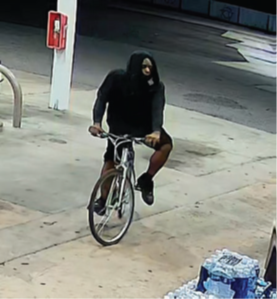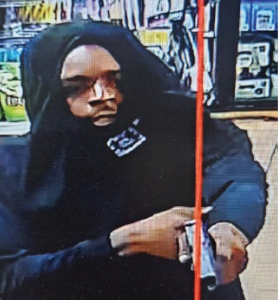

















|
|---|
|
Tampa Man Indicted For Gas Station Robbery Publisher: U.S. Attorney's Office, Middle District of Florida Dateline: Tampa, Florida 
Date: 9 February 2024 Subjects: American Government  , Crime, Fuel Stations , Crime, Fuel Stations
|
Tampa, Florida – United States Attorney Roger B. Handberg announces the return of an indictment charging Brandale Swails (29, Tampa) with Hobbs Act robbery and use of a firearm during and in relation to a crime of violence. If convicted on both counts, Swails faces a minimum mandatory sentence of seven years in federal prison.
According to court documents, on October 15, 2023, Swails arrived at a Tampa gas station on a bicycle, entered the business, pointed a gun at the clerk, and demanded money. The clerk immediately hid behind the counter, and Swails jumped over the counter. Swails stated he would shoot the victim if he did not open the register and demanded one-hundred-dollar bills. Swails continued to hold the victim at gunpoint while directing the victim into a bathroom. Swails then exited the business with an undisclosed amount of cash and fled on a bicycle. Swails was arrested two weeks later, hiding inside a bedroom closet.


An indictment is merely a formal charge that a defendant has committed one or more violations of federal criminal law, and every defendant is presumed innocent unless, and until, proven guilty.
This case was investigated by the Hillsborough County Sheriff’s Office and the Bureau of Alcohol, Tobacco, Firearms and Explosives. It will be prosecuted by Assistant United States Attorney Diego F. Novaes.
This case is part of Project Safe Neighborhoods (PSN), a program bringing together all levels of law enforcement and the communities they serve to reduce violent crime and gun violence, and to make our neighborhoods safer for everyone. On May 26, 2021, the Department launched a violent crime reduction strategy strengthening PSN based on these core principles: fostering trust and legitimacy in our communities, supporting community-based organizations that help prevent violence from occurring in the first place, setting focused and strategic enforcement priorities, and measuring the results.
Updated February 9, 2024
